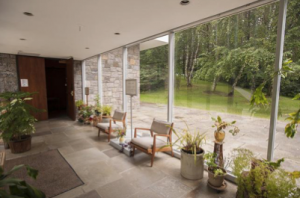-Madison Smith ’19
 Get ready for RecycleMania! The eight-week long, intercollegiate competition will begin next week on February 5th and formally end on April 1st.
Get ready for RecycleMania! The eight-week long, intercollegiate competition will begin next week on February 5th and formally end on April 1st.
During this competition, representatives from Colgate’s Office of Sustainability will work to educate students, staff, and faculty on how to properly recycle in an effort to reduce the amount of waste sent to the landfill.
According to the RecycleMania website, the mission of the competition is to provide “tools and opportunities that inspire, empower, and mobilize colleges and universities to benchmark and improve efforts to reduce or eliminate waste.”
For the past week and a half, Colgate’s groundskeeping crew has been weighing campus-wide recycling to determine a baseline of what our usual recycling rates are. Once we have established our baseline, we will set a recycling goal – a certain percentage of waste that we would like the university to recycle.
To reach this recycling goal, every two weeks during the eight-week competition, the office will focus on different types of materials that can be recycled.
The first two weeks will aim to inform students that the event is officially starting. Look for Green Raider Interns and Green Ambassadors in the Coop for recycling tips and prizes! Weeks three and four will focus on paper products that can be recycled, weeks five and six on the plastic and cans waste stream, and the final two weeks will highlight things you didn’t know were recyclable, such as e-waste and clothing.
We hope that Recyclemania ends with students, staff, and faculty feeling knowledgeable and excited about recycling both on campus and at home. It is such an easy, sustainable step that makes such a difference. It can help protect wildlife and habitats, reduce our need for landfills, and act as a material for innovative ideas and products. As a part of the Colgate community, we can be a catalyst for a greener and healthier planet!
Keep an eye out around campus for more Recyclemania news, tips, and updates!
Learn more about recycling at Colgate.





 Department: Sustainability Office
Department: Sustainability Office Each year, the Sustainability Office conducts a survey to assess the total carbon emissions coming from employees who commute to work.
Each year, the Sustainability Office conducts a survey to assess the total carbon emissions coming from employees who commute to work. To help Colgate achieve its goal of becoming carbon neutral by 2019, commuters can explore options to decrease the amount of gasoline they use in a year to drive to campus. Driving shorter distances to campus not only saves time and money, but also reduces your carbon footprint. Another option is to invest in a more fuel-efficient vehicle. Several employees have already invested in hybrid or ll-electric vehicles. Reducing the number of days you drive to work can also reduce your carbon footprint. This last option could be accomplished by walking to work when weather and distance permits, working from home with your supervisor’s permission, or by carpooling with another Colgate employee who lives nearby. A number of employees commented on the survey that increased bike lanes would make commuting by bicycle more practical and safe, and suggested a variety of improvements that would make it easier for more people to opt out of driving to campus alone. These suggestions will be carefully considered as we rethink parking and circulation patterns on campus.
To help Colgate achieve its goal of becoming carbon neutral by 2019, commuters can explore options to decrease the amount of gasoline they use in a year to drive to campus. Driving shorter distances to campus not only saves time and money, but also reduces your carbon footprint. Another option is to invest in a more fuel-efficient vehicle. Several employees have already invested in hybrid or ll-electric vehicles. Reducing the number of days you drive to work can also reduce your carbon footprint. This last option could be accomplished by walking to work when weather and distance permits, working from home with your supervisor’s permission, or by carpooling with another Colgate employee who lives nearby. A number of employees commented on the survey that increased bike lanes would make commuting by bicycle more practical and safe, and suggested a variety of improvements that would make it easier for more people to opt out of driving to campus alone. These suggestions will be carefully considered as we rethink parking and circulation patterns on campus.